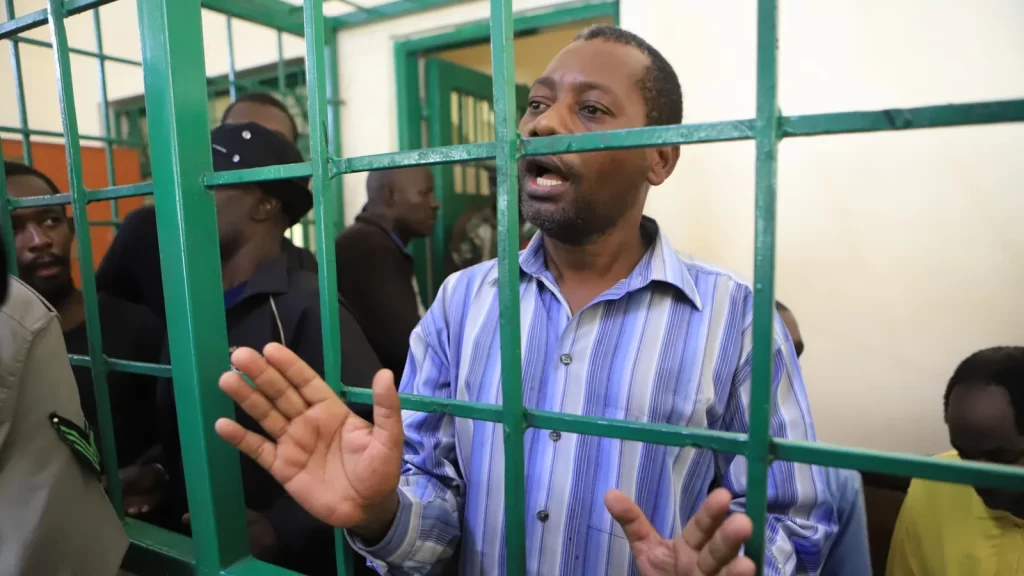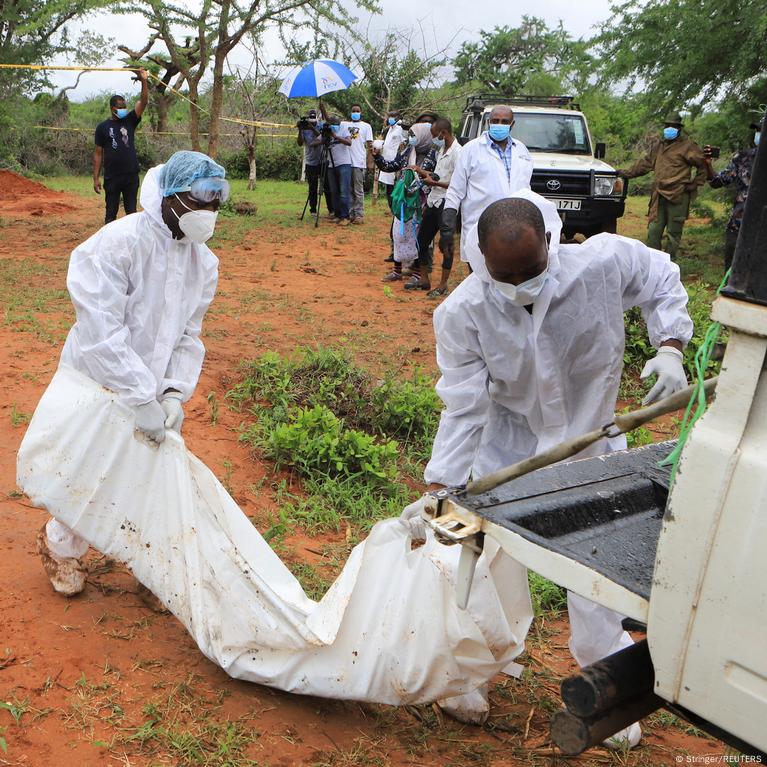Paul Mackenzie, the self-proclaimed pastor accused of leading one of Kenya’s worst cult-related mass deaths, has pleaded not guilty to manslaughter charges.
Mackenzie appeared in court in Mombasa on Monday, August 12, 2024, alongside 94 other suspects in a case that has shocked the nation.

The charges stem from the discovery of 429 bodies, including those of children, in mass graves in the remote Shakahola forest last April.
Most victims showed signs of starvation and assault, leading to the case being dubbed the “Shakahola Forest Massacre.”
Prosecutor Alexander Jami Yamina emphasized the unprecedented nature of the case, stating, “There has never been a manslaughter case like this in Kenya.”
The prosecution plans to call over 400 witnesses over the next four days, utilizing a law relating to suicide pacts due to the unique circumstances of the case.
Mackenzie, who founded the Good News International Church in 2003, allegedly encouraged his followers to move to Shakahola forest to “meet Jesus” and prepare for the end of the world. Survivors report a macabre order for starvation, beginning with children and ending with church leaders.
The case has highlighted issues within Kenya’s religious landscape, where 85% of the population identifies as Christian.
It has raised concerns about unregulated churches and cults operating in the country.

In addition to the manslaughter charges, Mackenzie faces separate trials for terrorism and child abuse.
He was previously convicted in November 2023 for illegally operating a film studio associated with his preaching.
As the trial unfolds, it continues to grip the nation, prompting discussions about religious freedom, child protection, and the need for stricter oversight of religious organizations in Kenya.
The case remains a stark reminder of the potential dangers of extremist religious ideologies and the vulnerability of followers to manipulation.
The ongoing identification and return of victims’ bodies to their families add a somber note to the proceedings, with only 34 bodies returned so far after months of DNA testing.
This process underscores the long-lasting impact of the tragedy on the affected families and the wider Kenyan community.



